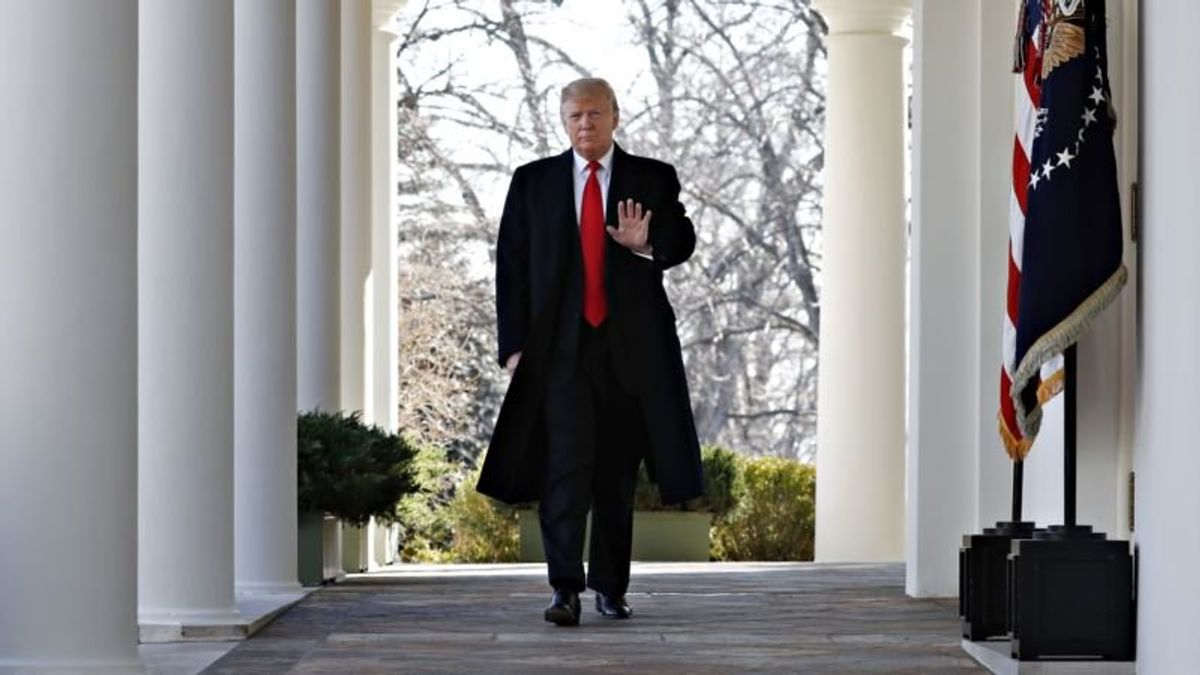
White House Wary of Another Shutdown But Firm on Wall
White House Wary of Another Shutdown But Firm on Wall

CAPITOL HILL —
The White House says President Donald Trump wants to avert another partial U.S. government shutdown but remains committed to erecting new barriers along the U.S.-Mexico border, something most Democratic lawmakers still reject.
"The president doesn't want to go through another shutdown — that's not the goal," White House Press Secretary Sarah Sanders said Monday at a press briefing, where she urged Democrats to "get serious about fixing the problem at the border, including funding for a border wall."

Federal agencies have reopened after the longest shutdown in U.S. history. Late last week, Trump signed a stopgap three-week funding bill designed to give congressional negotiators a window to craft a package enhancing border security.
The bipartisan conference committee, comprised of appropriators from both legislative chambers, is to begin consultations later this week. But the partisan fault line over border wall funding that sparked the shutdown persists.
"Democrats sharply disagree with the president on the need for an expensive and ineffective border wall," Senate Minority Leader Chuck Schumer of New York said moments before Sanders spoke.
"What I believe is, at any given place along the border, we've got to have some combination of three elements: physical barriers, technology and personnel," Texas Republican Sen. John Cornyn said. "So, we need a complement of each of those things in this border security bill that hopefully we'll be voting on in the coming weeks."

Earlier, Trump said he sees less than a 50 percent chance that congressional negotiators will put together a deal acceptable to him.
The president told The Wall Street Journal Sunday he doubts he would accept less than the $5.7 billion in wall funding he has been demanding. He also cast doubt on granting permanent legal status to immigrants brought illegally to America as children, calling it a "separate subject to be taken up at a separate time."
Meanwhile, conference committee members declined to speculate on what negotiations might produce.
"We're going to try to get something that works," Missouri Republican Sen. Roy Blunt told VOA. "It's going to have to be done somewhere other than in public. I'm of the view that we should make it as all-encompassing as we can."

At the White House, Sanders echoed Trump's threats to declare a national emergency and order wall construction if Congress fails to provide funding.
"If they don't come back with a deal, it means Democrats get virtually nothing," the press secretary said. "That will make the president — force him — to take executive action that does not give Democrats the things that they want."
Such talk is counterproductive, according to Democrats.

"When the president injects maximalist partisan demands into the process, negotiations tend to fall apart," Schumer said. "The president should allow the conference committee to proceed with good-faith negotiations. I genuinely hope it will produce something that is good for the country and acceptable to both sides."
The Congressional Budget Office estimated the five-week partial shutdown caused a $3 billion loss to the U.S. economy. The funding lapse caused federal services to be curtailed or paused and created a financial hardship for 800,000 federal workers who were either furloughed or worked without pay.
 Pelosi Invites Trump to Address Nation Next WeekNext PostUS Lawmakers Set to Introduce ‘First Strike’ Bill
Pelosi Invites Trump to Address Nation Next WeekNext PostUS Lawmakers Set to Introduce ‘First Strike’ Bill






